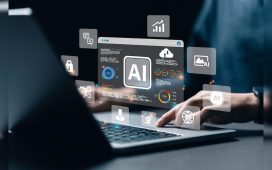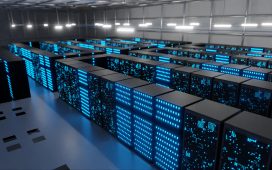—- “Our problems are man-made therefore they may be solved by man.”-President J. F. Kennedy
In a recent Facebook post, I addressed the concerns and uncertainties surrounding Artificial Intelligence (AI). I shared a quote from a conversation with a close friend who strongly opposes AI, expressing her fear that AI robots could take over the world, turning humans into their subordinates, much like in the movie “Planet of the Apes.”
What I garnered from our conversation was her fear that AI will reach a point where, as I posted, “The servant will be the master, and the master will be the servant.”
During my time in high school and college, I immersed myself in numerous books and movies that explored the concept of humanity being surpassed or dominated by external forces.
One notable example is the novel “Planet of the Apes” (La Planete des Singes) written by Pierre Boulle in 1963, which was later adapted into movies featuring the late Charlton Heston. Another well-known work is the novel “I, Robot” by Isaac Asimov, which was also made into a film starring Will Smith. Additionally, we should not overlook “The Island of Dr. Moreau,” featuring Marlon Brando.
These literary and cinematic creations predominantly express concerns about scenarios where animals, machines, or other entities surpass humans in a way that shifts the balance of power.
They envision a world where mankind, previously the dominant force, becomes subservient, while the “other kind” assumes the role of the master. In contemporary discussions, artificial intelligence (AI) is often depicted as a potential challenger to humanity. Nevertheless, I hold the belief that such a scenario is highly unlikely. Allow me to elaborate on my perspective.
Artificial Intelligence (AI) has fascinated people for a long time, evoking both hopes and fears about its potential.
While AI has made significant advancements in automating tasks and revolutionizing various industries, the notion of a “Planet of the Apes” situation, where intelligent apes overthrow humanity, faces significant barriers. Before delving into these details, let’s first understand what AI is.
AI refers to computer systems or machines capable of performing tasks that typically require human intelligence. It has achieved remarkable feats in areas like image recognition, natural language processing, and even creative endeavors such as music composition.
Recent developments have allowed AI-powered robots to achieve human-level performance in tasks like object detection, visual data processing using Convolutional Neural Networks in Deep Learning), emotion recognition, etc. While these are impressive advancements, they do not necessarily imply that AI will surpass human intelligence entirely.
AI offers us unprecedented opportunities to apply new technologies to solve some of the fundamental problems affecting society. The rapidity in the development of approaches that offer better ways to train AI through machine learning is indeed staggering.
Even more staggering is ability to use large amounts of data are being used to train AI models. Google BERT, quintessence of the opportunities AI offers, is a model for natural language processing and understanding trained on 3.3 billion words of written English.
Another example of the achievements AI has made is Dall-E , which is an AI that was built on GPT-3’s ability to ‘understand’ text and combine that with the ability to generate images. Clearly, the possibility of AI drawing from vast data means it has already surpassed human capability in some domains, but the ability to replicate complex human traits and intentions remains a considerable challenge.
The “Planet of the Apes” scenario involves apes acquiring human-level intelligence and rising against their human counterparts. While AI has shown remarkable progress in specific domains, simulating the cognitive abilities of humans, such as emotional intelligence, creativity, and moral reasoning, presents significant challenges. AI systems lack the intrinsic motivations, emotions, and subjective experiences that characterize sentient beings.
Even if we were to assume that AI could attain human-level cognitive abilities, replicating all of the physical, emotional and cognitive attributes of man would be a formidable task. Man has tried for years to develop “something” that replicates man, but the physicality and biological complexity required to mimic the capabilities of man or any other living organism has been a major challenge.
Ostensibly, the “Planet of the Apes” scenario raises profound ethical questions. Granting machines the ability to think, reason, and other human-like traits poses significant risks.
And for this reasons, policy makers, developers and researchers today emphasize the importance of ethical AI design, ensuring that AI systems are aligned with human values and do not pose a threat to humanity. The scenario portrayed in the movie raises concerns about the consequences of creating highly intelligent, autonomous beings without proper ethical considerations.
Now, there are technological limitations that make me optimistic that despite the rapidity with which progress is being made in AI, it will not bring into reality the fears and concerns that are raised now. We may still far from achieving general artificial intelligence (AGI) that can match or surpass human intelligence across a wide range of tasks. To bring into reality the “Planet of the Apes” scenario requires the development of AGI that can comprehend, strategize, and adapt in complex real-world scenarios.
President John F. Kennedy once said: “Our problems are man-made, and therefore they may be solved by man. And man can be as big as he wants. No problem of human destiny is beyond human beings.” Ostensibly, as you can see, I share JFK’s philosophy!!
While I am not disputing the possibility or probability of AI eclipsing man’s abilities, I have absolutely no reason to believe that man cannot control that which he created.
I believe we will have the governance and technological instruments that will control AI, even though like many other technologies, we may have to deal some of challenges that accompany technological change.
As AI permeates economies and societies, we will develop policy and institutional frameworks to guide its design and use, and ensure that it benefits society as a whole.
For now, rather than fearing the rise of intelligent machines, it is essential to focus on policies and regulations to develop and use them. The potential of AI lies in its ability to augment human capabilities and solve complex problems that benefit society.
Instead of fearing (even though legitimate) the replicating scenarios that lead to conflict and destruction, we should direct our efforts towards developing AI that can work synergistically with humans, assisting in areas such as healthcare, climate change, and scientific research.
“Planet of the Apes” is a captivating concept in science fiction book and movie, but replicating it in reality through AI is highly unlikely. Rather than being consumed by dystopian scenarios, we should embrace AI as a tool to enhance our lives and ensure that its development aligns with human values and ethical principles.











